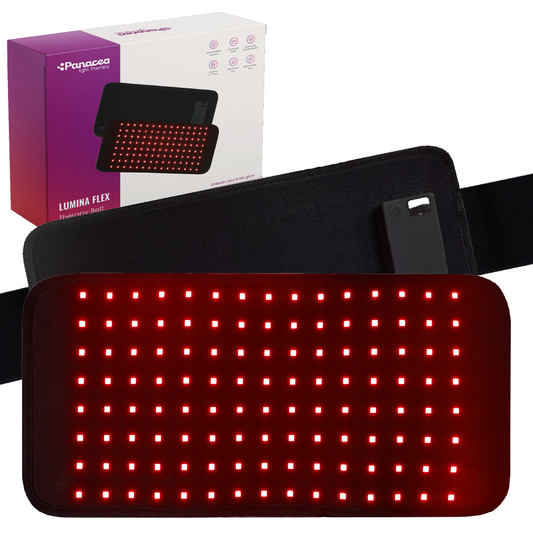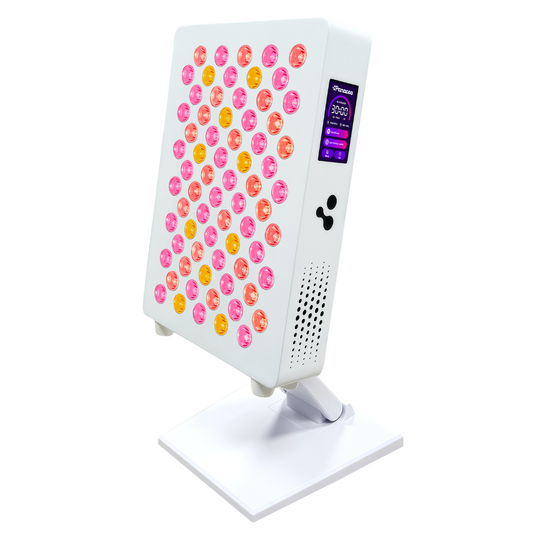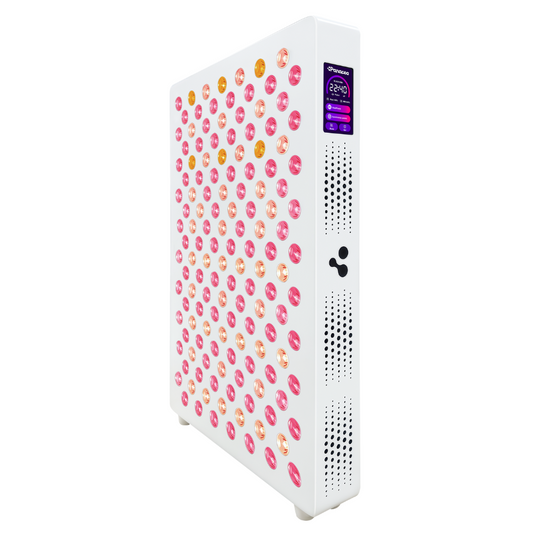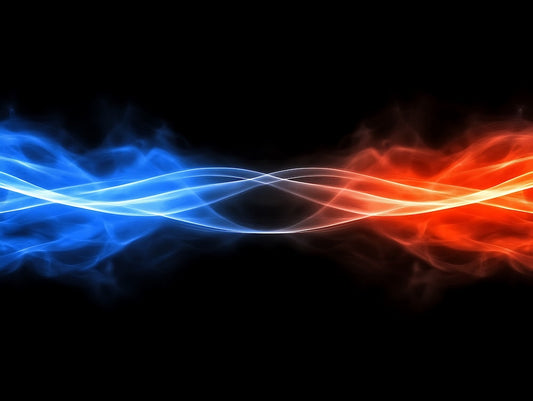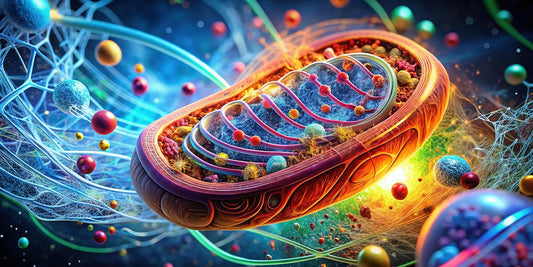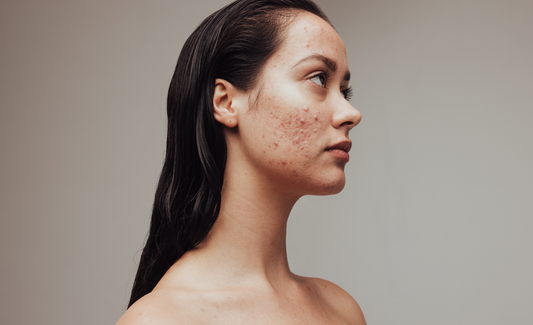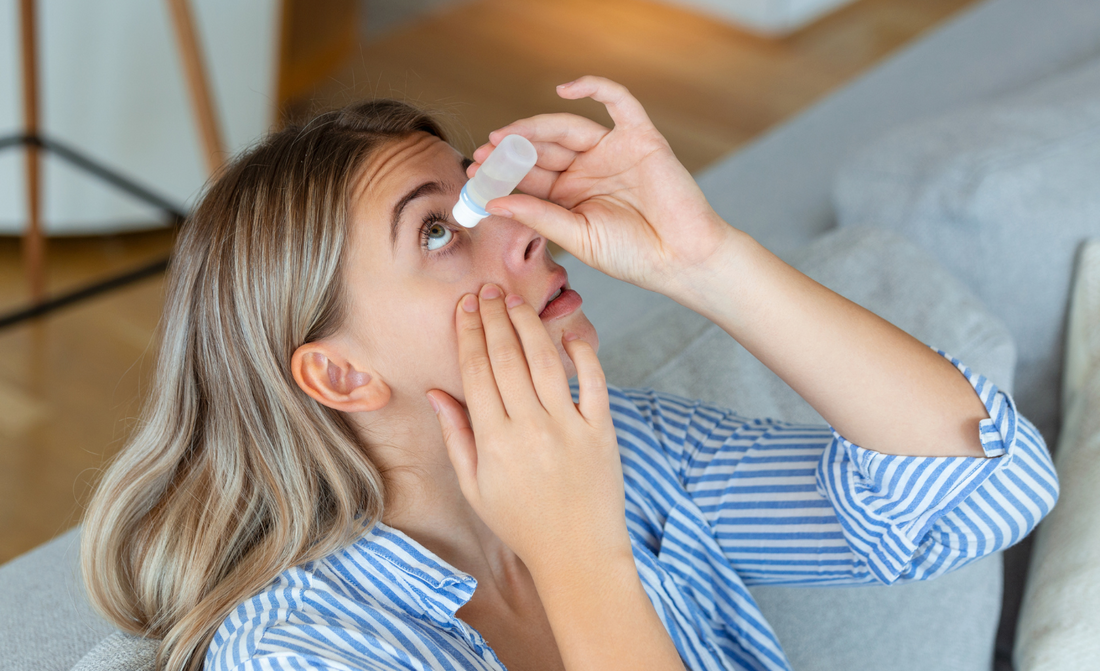
Hay fever and pollen allergy relief with red light therapy: does it really work?
Share
Spring has sprung. The sun is showing itself again, nature is coming to life and the first green buds and blossoms are appearing everywhere. But for millions of people this unfortunately also means something else: sneezing fits, watery eyes, a blocked nose, itching and a tired feeling that just won't go away.
Hay fever and pollen allergies can really ruin spring. And that is frustrating, especially at a time when you want to enjoy the outdoors.
The standard solutions are often medications such as antihistamines or nasal sprays. But they do not always work well, and they can have unpleasant side effects such as drowsiness or a dry mouth. Fortunately, there is a natural, painless and scientifically proven approach that more and more people are benefiting from: red light therapy .
What is red light therapy?
Red light therapy – also known as photobiomodulation – is a treatment method in which light in specific wavelengths is directed at the body. The red and infrared light stimulates the cells to produce more energy, reduce inflammation and accelerate the natural healing process.
Instead of suppressing symptoms like medications do, red light therapy helps the body regulate itself better. The goal: less histamine, less swelling of the nasal mucosa, and a calmer immune response.
How can red light therapy help with hay fever?
When your body overreacts to pollen, a chain reaction occurs: your immune system sounds the alarm, histamine is released, and you suffer from all kinds of complaints. Red light therapy works on the source of these complaints:
- Reduces inflammation in the nose, airways and skin
- Inhibits the release of histamine , which reduces sneezing and itching
- Accelerates the recovery of irritated mucous membranes
- Soothes the skin in case of eczema or allergic reactions
- Boosts energy levels , which often decrease with allergies
What wavelengths are used?
At Panacea Light Therapy we use six specific wavelengths – each with a targeted effect:
- 630 nm: soothes allergic skin reactions (itching, redness, eczema)
- 660 nm: Works effectively in the nasal cavity and reduces swelling of the nasal mucosa
- 810 nm: penetrates the airways and can provide relief from allergic asthma
- 850 nm: supports the lymphatic system and helps the body remove inflammatory substances
- 940 nm: works deeper in the tissue and helps with shortness of breath or pressure on the chest
- 1060 nm: being studied for cognitive clarity and recovery from allergy-related fatigue
What does science say?
Research shows that light therapy is not only safe, but can also have a real effect on allergy symptoms:
-
Rhinolight therapy (light directed into the nose) has been shown to be effective in people with hay fever: symptoms such as sneezing and nasal congestion are significantly reduced.
Source: Sherali, 2018 – WTAMU - A review on airway inflammation showed that red light can affect cytokines such as IL-5, which are active in allergic responses.
Source: Hanusrichterova & Mokry, 2024 – American Journal of Physiology - Other studies show that red light helps calm the skin, reduce histamine and repair damaged mucous membranes.
Source: Li et al., 2020 – bioRxiv
Why choose red light therapy?
What makes red light therapy so attractive for people with hay fever or pollen allergies:
- It's all natural – no medication needed
- Painless and suitable for daily use
- Not only treats the symptoms, but supports the body from within
- Can be applied at home with easy to use equipment
For many people it is a godsend: finally being able to breathe through your nose again, without feeling drowsy from pills. No tickling in your throat or burning eyes when you go outside. Just being able to enjoy spring again - that is what red light therapy can help with.

